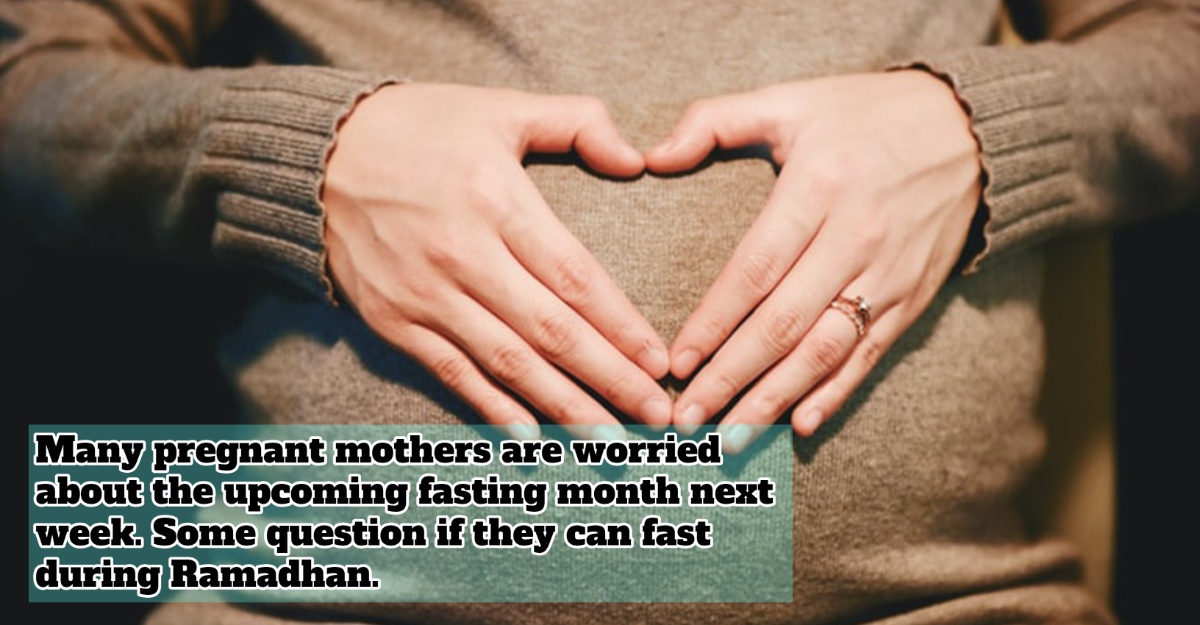Many pregnant mothers are worried about the upcoming fasting month next week. Some question if they can fast during Ramadhan. Will it affect not only their health but the baby in their womb?

According to Dr Izzat, these kinds of pregnant mothers don’t have to fast. Who are they?
Dah banyak patient mengandung tanya saya kat klinik, boleh tak dia berpuasa nanti?
Secara amnya, ibu mengandung yang TAK digalakkan untuk berpuasa adalah seperti berikut : pic.twitter.com/pyBABNYfoV
— Dr Izzat (@DrMuhammadizzat) March 14, 2023
These pregnant women aren’t ‘wajib’ to fast
1) A mother who has gestational diabetes mellitus (GDM) with controlled insulin intake.
- GDM is a condition when a hormone made by the placenta prevents the body from using it effectively.
- Thus, this builds up glucose in the blood instead of being absorbed by the cells.
2) Has a high risk of venous thromboembolism/VTE (darah beku) or experienced VTE and is given medicinal shots to dilute the blood concentration (Clexane).
3) Next is a mother who has Ovarian hyperstimulation syndrome (OHSS).
- This is for mothers who are pregnant by fertility medicine.
4) Excessive vomiting during early pregnancy or another trimester.
5) Pregnant mothers that experience bleeding.
6) Unhealthy mothers (fever or COVID).
7) Mothers that carry a baby with Intrauterine growth restriction (IUGR).
- IUGR is when a baby in the womb (fetus) doesn’t grow as expected.
- The timing is known as an unborn baby’s ‘gestational age’.
8) Mothers that carry twins.
However, it doesn’t only imply them. Other related conditions that affect the mother and baby’s health can also be excused from fasting (with a doctor’s approval).
A few tips and tricks for pregnant mothers
Additionally, Dr Izzat shares a few tips for mothers that can fast:
1) Eat more during breaking fast and suhoor.
- Choose a balance and nutritional diet to avoid diarrhoea, indigestion and heartburn.
2) For breaking fast, try this suggested meal method:
- Three dates + fruit juice (other alternatives are sup or low-fat yoghurt).
- Afterwards, take a balanced mixture of salad, protein and carbohydrates in your meal.
- Avoid high-fat and oily food!
3) Don’t skip suhoor.
4) Avoid drinking tea or coffee during suhoor.
- Caffeine makes you urinate more. This makes your body dehydrate.
5) Drink plenty of water during suhoor and break fast.
We hope this thread is beneficial for all pregnant mothers out there!
Sources: Twitter Dr Izzat, Johns Hopkins Medicine, Medscape, KidsHealth








